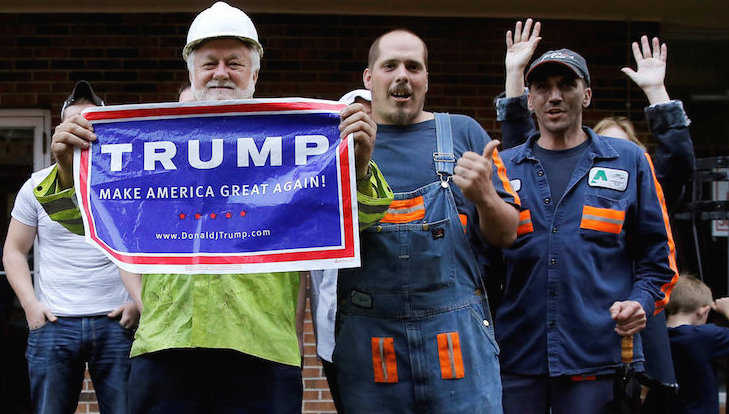WASHINGTON — The top U.S. environmental regulator said Friday that federal rules to curb power plant pollution are not the cause of the economic decline of coal country after presidential candidates confronted anger on the campaign trail this week from laid-off West Virginia miners.
“We need to understand that the market right now is saying that coal isn’t competitive. It is saying it louder and clearer everyday,” U.S. Environmental Protection Agency Administrator Gina McCarthy said at a Climate Action summit in Washington.

McCarthy spoke at the end of a week that saw the three remaining U.S. presidential candidates campaign in coal mining state West Virginia, where mining job losses and mine closures were a central theme.
Democratic front-runner Hillary Clinton faced backlash from residents of southern West Virginia for comments she made in March that her economic renewal plan for the state would put “a lot of coal miners and coal companies out of business.”
Meanwhile, presumptive Republican nominee Donald Trump donned a miners’ helmet at a political rally Thursday, pledging to bring back coal mining jobs. He said Clinton would carry out President Barack Obama’s environmental rules.
“You can’t take it folks. You’re gonna have your mines closed, 100 percent,” Trump said.
McCarthy said the economic decline of the Central Appalachian region started to happen in the 1980s, well before her agency released the Clean Power Plan, a proposal made last year to lower carbon emissions from power plants by 2030 to 32 percent below 2005 levels.
That rule was placed on hold in February by the Supreme Court after a legal challenge by 27 states, including West Virginia.
She said the cheapest, easiest-to-mine coal in the region has already been extracted, and that it faces competition from newer mining areas in the west and cheap natural gas.

McCarthy said there is legislation being considered in Congress that would unlock more than a billion dollars in federal funds to help the coal-dependent region create new economic opportunities and re-train workers.
“Coal will be around for a while in the U.S. but the challenge we have is to actually invest in those communities today so they can better prepare than they have been for the future,” she said.
“To deny that transition is happening is to deny current economics and current market conditions. It’s not going to get better without a Clean Power Plan,” she said.
VALERIE VOLCOVICI










